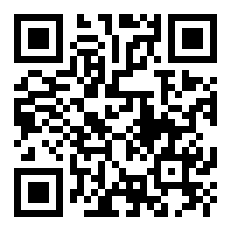Indigenous Igbo endearment names for wives as communicative acts in socio-cultural contexts
DOI:
https://doi.org/10.60787/jnlp.v6i2.69Keywords:
endearment, naming, practice, attitude, locutionary, expressiveAbstract
One way in which the culture of a people is reflected in language use is through their personal naming patterns, which often express a network of inter-cultural connections and communicate beliefs, historical antecedents, values, intentions, experiences, and cultural practices. In traditional Igbo society, it was a socio-cultural norm for a newly married man to give his wife an indigenous endearment name as a form of identification and affection. However, as reported by respondents during the course of this research, this linguistic and cultural practice is rapidly changing, likely due to shifting attitudes influenced by contact between Igbo language and culture and those of other linguistic communities within the Igbospeaking regions. This paper examines indigenous Igbo endearment names for wives as communicative acts situated within socio-cultural contexts. The names studied are characterized by a structural pattern in which a chosen nominal element combines with the attributive compound morpheme diya (‘her husband’). These names were elicited from purposively selected participants, both the name-givers (husbands) and the bearers (wives), within the study area. The data were analyzed in terms of communicative act types and
speech act categories. Findings reveal that each endearment name functions as a sociocultural communicative act that positions the wife as an integral part of her husband. These names are locutionary acts imbued with illocutionary and perlocutionary forces, primarily derived from their initial nominal components. They also fall within the declarative and expressive categories of speech acts. Furthermore, the study shows that these names have a strong interface with the social and cultural identities of the Igbo people. They play a vital role in reinforcing husband-wife interpersonal relationships within the marital context. The names also serve as reflections of traditional socio-cultural history, illustrating how naming practices evolve over time and how they encapsulate hierarchies and power dynamics embedded in the social structures of Igbo communities.
References
Anyachebelu, A.L. (2015). “Patterns of Igbo Spousal Names in Ohafia”. A Journal of African Studies. 7, 1. Pp 214-227.
Anyachonkeya, N. (2014). “Naming in Igbo Land: A Linguistic and Cultural Study”.Mediterranean Journal of Social Sciences. Vol 5 No 17. pp 113-122.
Austin, J. L. (1962). How To Do Things With Words. Oxford: Clarendon.
Cyril, A. (2020). “Igbo World View and the Translation of Igbo Names”. International Journal of Humanities and Social Science Invention (IJHSSI). |Volume 9 Issue 6 Ser. I. PP 42-53.
Dioka B. O., Iwunna, P.U. & Alison, J.O. (2021). “Igbo Personal Names, Meanings, and Influence of the Christian Religion: A Historical Analysis (1857 - 2020)”. Ekwe Jonal nke ndi Igbo Scholars Forum, Nigeria. Vol.14. No.3. 63-71.
Eggins, S. 1994. An Introduction to Systemic Functional Linguistics. London: Pinter.
Emeka-Nwobia, N. U. (2016). “Dynamics of Onomastics in Afikpo Igbo Society”.
Ezeanya, S. (1994). A handbook of Igbo Christian names. Onitsha: Trinitas Publicatios.
Ezeude, E. D. 2000. Igbo Names. Pittsburgh: Penn Dorrance Publishing Co. Inc.
Hudson, R. A. (2001). Sociolinguistics (2nd ed.). Cambridge Textbooks in Linguistics, Cambridge: Cambridge University.
Iwundu, M. E. (2000). “Procreation and the Igbo Thought Through Names”. Igede Igbo. 1.
(1). PP 23-44.
Iwundu, M.E. (1994). “Naming and Heroism in Igbo Traditional Life”. Journal of Liberal Arts, 3,1&2.
Mbonu, C. (2010). Handmaid: The power of names in theology and society. Eugene, Oregon:
WIPf & Stock Publishers.
Nkamigbo, L.N. (2019). The Sociolinguistics of Igbo Personal Names. Journal of Linguistics, Language and Culture. Vol 6, No 1.159-178.
Onumajuru V. C. (2016). A Semantic and Pragmatic Analyses of Igbo Names. An International Multi-disciplinary Journal, Ethiopia Vol. 10 (2), Serial No.41, April, 2016: 307-324.
Searle. J. R. (1969). Speech Acts: An Essay in the Philosophy of Language. Cambridge: Cambridge.
Ubahakwe, E. (1981). Igbo Names: their Meaning and their Structure. Ibadan: Daystar Press.
Udoh, I. I, Anyanwu, O. N. & Osuagwu, E. (2019). Fundamentals of Linguistics. Uyo: Fruities Publications.
Ukaegbu, E. K. & Okon, B. A. (2024). Shift in Igbo Personal Naming Patterns. Languages 2024, 9(10), 312; https://doi.org/10.3390/languages9100312.











